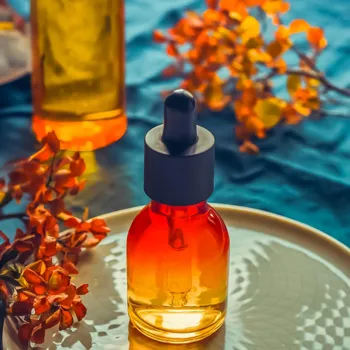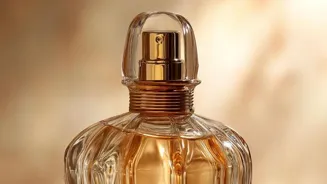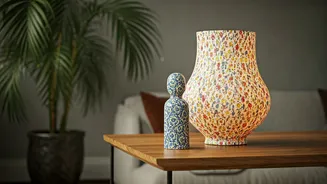Uncover Perfume's Intriguing Past: 8 Facts Transforming Your Fragrance Choices! Dive into history to redefine your scent selection
Namaste, fragrance lovers! Ever wondered about the fascinating journey
of that sweet-smelling perfume sitting pretty on your dresser? Perfume isn't just about smelling nice; it's a tale woven with history, culture, and a dash of alchemy.
So, ditch the usual perfume ads for a bit and let's dive into some amazing facts that will totally change the way you pick your next fragrance. Trust me, you'll be sniffing with a whole new perspective!
Perfume's ancient roots in rituals; Egyptians valued scents for spiritual and daily use
Perfume's story begins way back, like REALLY back, in ancient Mesopotamia and Egypt. Forget fancy French brands; the earliest perfumes were basically incense and aromatic herbs used in religious rituals.
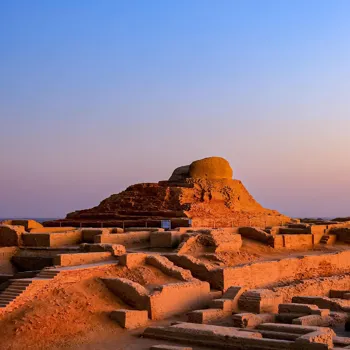
Think fragrant resins like frankincense and myrrh, burned to please the gods and purify sacred spaces. Egyptians, particularly, were obsessed with scents. They believed perfumes held spiritual power and used them in everything from embalming the dead to daily life.
Cleopatra, that iconic queen, was famous for her lavish use of perfumes, even drenching the sails of her ships in fragrance! This set a trend for royalty showing off wealth and power.
Romans elevated perfume for personal luxury and status symbol
The Romans took the concept of perfume to a whole new level. They weren't just using it for religious occasions; it was all about personal adornment and luxury. They had public bathhouses where people would lather themselves in scented oils and unguents. And they didn't stop there!
Romans perfumed everything, from their clothes and furniture to their pets and even their walls! They experimented with different ingredients, importing spices and aromatic plants from all corners of their vast empire.
While the Egyptians associated scents with the gods and afterlife, the Romans saw perfume as a symbol of status and pleasure, ensuring everyone enjoyed it.
Arab world advances science and perfumery during Dark Ages
While Europe was going through the Dark Ages, the Arab world was making great progress in science, including chemistry and medicine. Arab perfumers perfected the art of distillation, a game-changing technique for extracting essential oils from flowers and plants.
Thanks to geniuses like Ibn Sina (Avicenna), who invented the coiled cooling pipe, they could produce purer and more concentrated fragrances. Rosewater, a key ingredient in many perfumes even today, became hugely popular.
The Arabs' mastery of distillation techniques not only improved the quality of perfumes but also opened up a whole new world of fragrance possibilities. Their contributions are still fundamental to perfumery today.
Renaissance Europe: Perfume's Rise in Fashion and Society
The Renaissance in Europe saw a revival of interest in arts, science, and, of course, perfumes! As trade routes with the East opened up, new and exotic ingredients flooded European markets. Italy and France became major centers for perfume production.
Royal courts, particularly in France, were obsessed with fragrances. It wasn't just about smelling good; perfume was used to mask bad odors (bathing wasn't exactly a daily habit back then!). Glove makers often perfumed their gloves, which became a fashionable accessory.
This association with fashion and high society paved the way for France to become the perfume capital of the world.
In the 18th century, a new type of fragrance emerged
Eau de Cologne, originating from Cologne, Germany. This was a lighter, more refreshing scent based on citrus oils like lemon, orange, and bergamot, blended with herbs. It was a far cry from the heavier, muskier perfumes that were popular at the time.
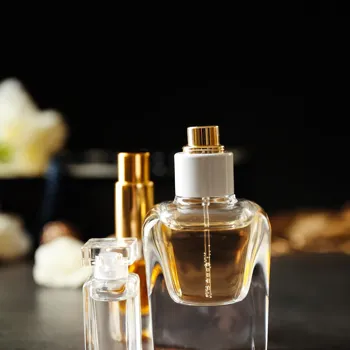
Eau de Cologne became a huge hit, used for everything from bathing to flavoring wine (yes, really!). It was considered a health tonic as well as a fragrance, and its refreshing character made it a favorite across Europe.
Its light, clean scent was a welcome change, and it's still enjoyed today, often as a men's fragrance or aftershave.
Late 19th century: Synthetic fragrances revolutionize perfume industry, enabling innovation and accessibility
The late 19th century brought a revolution to the perfume industry: the discovery of synthetic fragrance molecules. Before this, perfumers relied entirely on natural ingredients, which were expensive and sometimes hard to come by.
Synthetic ingredients allowed them to create completely new scents that didn't exist in nature, expand their palettes and mass-produce perfumes at a lower cost. This opened doors for innovative fragrances and made perfumes more accessible to everyone. Iconic perfumes like Chanel No.
5, with its use of synthetic aldehydes, wouldn't be possible without this scientific advancement, forever changing the fragrance landscape.
Perfume evolved from masking odors to expressing identity in 20th century
In the 20th century, perfume became less about masking odors and more about expressing individuality. Perfume houses started branding their fragrances, creating distinct "signature scents" that became associated with certain personalities and styles.
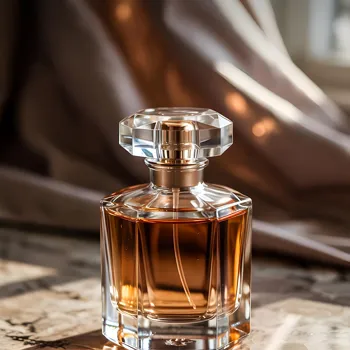
Celebrities started endorsing perfumes, further solidifying the connection between fragrance and identity. Coco Chanel famously said, "A woman who doesn't wear perfume has no future," highlighting the importance of fragrance as a fashion statement.
Choosing a perfume became a way to define oneself, to make a statement without saying a word. Everyone has a personal scent!
Growing interest in niche perfumes for unique scent experiences
In recent years, there's been a growing interest in "niche" perfumes. These are fragrances created by independent perfumers or smaller houses that focus on artistry and creativity, rather than mass appeal.
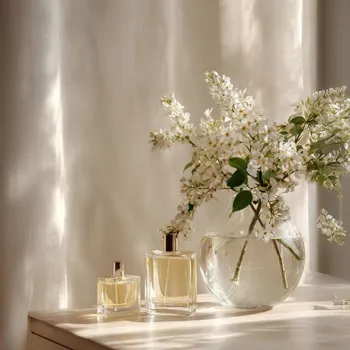
Niche perfumes often use unusual or rare ingredients and tell a unique story through their scent. They are for people who are looking for something different, something that stands out from the mainstream. These perfumes offer a truly personalized fragrance experience
Exploring perfume history enhances personal scent selection
Knowing the history of perfume allows you to choose a scent that you can appreciate from a cultural and artistic perspective. You can also choose a scent that is more personal to you and how it appeals to you! Choosing perfume just got interesting!
